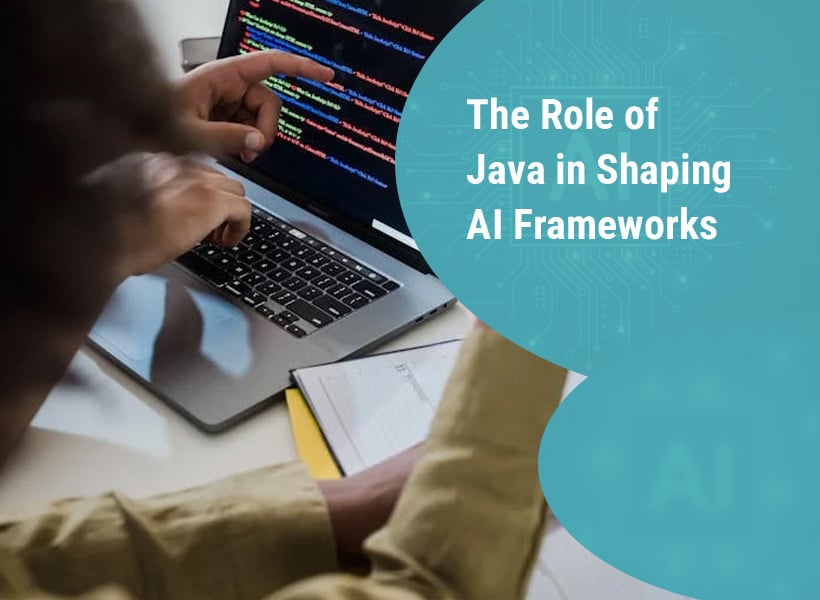
Full stack Java course offerings are becoming increasingly vital as Java continues to play a powerful and sometimes surprising role in shaping modern AI frameworks. While traditionally known for its dominance in enterprise and web development, Java has evolved into a reliable language for building sophisticated artificial intelligence systems.
Learning through a full stack Java developer course now provides more than just web development training—it opens doors to AI integration, giving you the skills to develop scalable, intelligent systems using one of the most stable programming languages available.
Java’s Evolution: From Web to AI
Java began as a language for embedded systems, but quickly rose to prominence in web development due to its platform independence, security features, and scalability. Today, that same flexibility and robustness power its transition into artificial intelligence.
- Initially enterprise-focused: Java was the top choice for building scalable, secure web applications.
- Object-oriented and strongly typed: These features made Java ideal for building complex systems like AI models.
- JVM (Java Virtual Machine): Offers optimization and cross-platform performance that AI applications demand.
- Mature ecosystem: Java boasts decades of libraries, tools, and frameworks that support both traditional and modern AI tasks.
A modern Java full stack developer course equips learners with both front-end and back-end capabilities, along with exposure to AI libraries and real-world integrations.
Key Java-Based AI Frameworks and Tools
Java’s ecosystem includes a range of frameworks that simplify the development of AI models. These tools are increasingly being taught as core parts of full stack Java curricula, enabling learners to apply their skills across multiple industries.
Deeplearning4j (DL4J)
- Java’s leading deep learning framework, compatible with Python-based models.
- Supports GPU and CPU training.
- Easily deployable on JVM-based environments, mobile apps, and Spark pipelines.
Weka
- Open-source data mining and machine learning toolkit.
- Offers a GUI and integration with Java applications.
- Ideal for educational purposes and rapid prototyping.
MOA (Massive Online Analysis)
- Designed for mining real-time data streams.
- Supports classification, clustering, regression, and anomaly detection.
- Scales well for big data applications.
Neuroph
- Lightweight Java neural network library.
- Simple structure and easy-to-use GUI for quick experiments.
- Good choice for developers starting with neural network concepts.
Apache Mahout
- Optimized for distributed machine learning on big data.
- Uses Spark and Hadoop for processing large-scale datasets.
- Mathematical DSL in Scala, but still integrates well with Java backends.
TensorFlow for Java
- Enables integration of TensorFlow AI models into Java applications.
- Useful for leveraging Google’s AI capabilities while maintaining JVM compatibility.
These frameworks highlight Java’s growing relevance in AI and justify why they are now integrated into modern full stack Java course.
How Java Supports Full Stack AI Development
Java’s structure makes it especially suitable for full stack AI development. It can manage everything from database operations and server logic to real-time AI processing and API delivery.
Cross-platform deployment
- Java’s “write once, run anywhere” capability ensures AI models and services can run across systems without platform conflicts.
Threading and concurrency
- Java’s multithreading allows AI tasks—like image processing, model inference, or data streaming—to run efficiently and concurrently.
Spring Boot for AI APIs
- Enables AI models to be wrapped into microservices and exposed via RESTful APIs.
- Facilitates seamless integration into enterprise software systems.
End-to-end development
- A single language can be used to build both front-end dashboards and back-end AI inference engines.
- Reduces the complexity of managing multiple technologies.
Enterprise-grade stability
- Trusted by over 90% of Fortune 500 companies.
- Capable of supporting mission-critical applications with complex AI workloads.
These capabilities reinforce Java’s position as an ideal language for building reliable and scalable AI systems. Through full stack development training, learners can seamlessly integrate artificial intelligence into enterprise applications without needing to learn multiple languages.
Benefits of Learning AI with Full Stack Java
Pursuing a full stack Java developer course with AI modules offers learners a competitive edge in today’s technology job market.
- Broader career opportunities: Ability to handle both front-end UIs and backend AI logic.
- High demand in enterprises: Java remains one of the most in-demand skills in large companies.
- Future-proof skill set: Combines timeless Java expertise with emerging AI knowledge.
- Adaptability: Supports a wide range of applications from chatbots to predictive analytics and recommendation systems.
Whether you’re building AI-powered financial tools, healthcare diagnostics, or e-commerce platforms, Java’s tools and frameworks provide the reliability and performance you need.
Conclusion
Java has evolved into a cornerstone technology for AI framework development. Its robust infrastructure, enterprise-grade reliability, and cross-platform compatibility make it an ideal choice for building full stack AI applications.
By enrolling in a full stack Java developer course, you’re not just learning how to build websites—you’re gaining the power to develop intelligent, scalable systems that incorporate the latest in artificial intelligence. Frameworks like DL4J, Weka, and TensorFlow for Java are at your disposal, and Java’s ecosystem gives you the tools to bring these models to life.
Mastering Java through full stack training places you at the intersection of two transformative technologies—software engineering and AI—giving you the confidence and capability to build the intelligent systems of tomorrow.